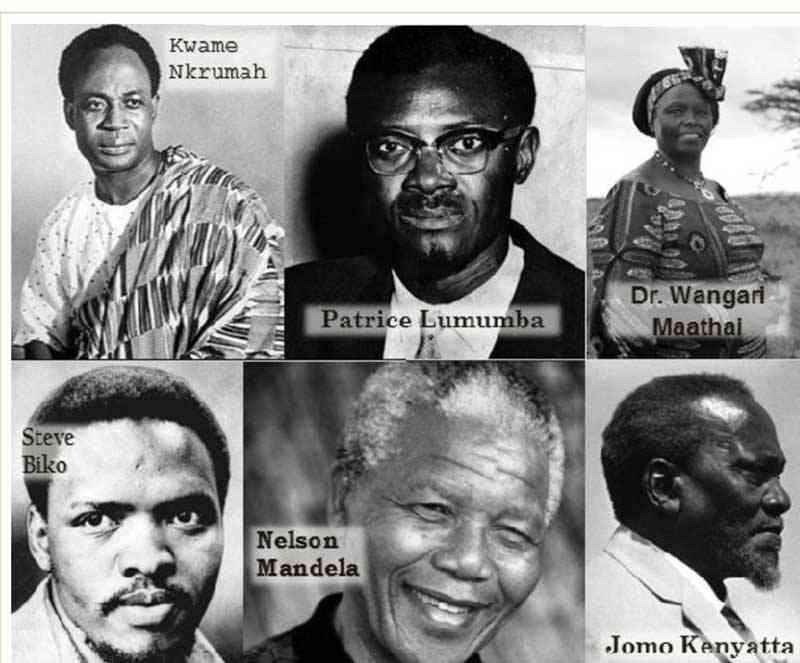
AS a young black African woman, I strongly feel that life experiences have aged me way beyond the pace of my peers. This should be the typical feeling of any other African child who was not born right. By the time we get halfway through our youthful years; we would have faced many atrocities that can last up to multiple lifetimes.
The irony is that with each sunrise, new mayhems emerge, pushing us further and further away from social and economic justice. Yes, I did say born right, as a matter of the strata into which one is birthed. Everything, all our problems, emanate from the very idea of inequality and its nexus to the manner in which decisions at all leadership positions are made. In this article I will look at some of the practices that the leadership in Africa should avoid so that our states can be progressive.
The leaders we need in Africa do not mortgage the future of oncoming generations by acquiring resource-backed loans, especially without public consultation. It is a well-known facts that Africa is blessed with natural resources. Diamonds, gold, oil, uranium, bauxite, platinum and many other minerals, with an array of both domestic and wild animals. We have the Victoria Falls bordering Zimbabwe and Zambia, we have the Table Mountain down South, Kilimanjaro and the Sahara Desert among others. Africa is truly blessed. What is needed is for us as a continent to ensure that we preserve these natural resources such that the African future generations will also enjoy the benefits of ownership of the said. We need to be able to allow them to inherit these resources.
It is important that we have leaders who prioritize the preservation of our natural resources for the future generations, and this ensures that the loans acquired through transparent and consultative processes that do not put our resources at risk. It also goes to follow that investing in sustainable development practices that support economic growth without compromising the environment. We need leaders who understand the importance of balancing short -term gains with long term sustainability. Only then can we measure that Africa’s natural resources continue to benefit us all for generations to come.
This is however, totally difficult as those in power continue to acquire loans from regional and international finance communities, using these natural resources as collateral. For example, in the mid-1990s these practices were documented in Angola where the government sought loans to finance its civil wars and they used future petroleum revenues as guarantee to the loan.
Since then, the acquisition of Resource-backed loans has become relatively common in sub-Saharan countries and all the aforementioned natural resources being mortgaged. Countries like Chad, The Democratic Republic of Congo, Ghana, Guinea, Niger, Sudan, South Sudan and Zimbabwe have fallen prey. The loans are mostly from the IMF, the World Bank and chiefly the Republic of China.
These types of loans are not conditioned on human rights, good governance, democracy, political rights, constitutionalism and civil liberties. According to reports from the African Forum and Network on Debt and Development (AFRODAD), and The Southern African Resource Watch, the recipients of these types of loans demonstrate a high level of weakness in resource governance, lack
transparency and accountability of their resource sectors and have highly compromised social security nets as well as poor public service delivery systems. This basically means these countries end up failing to take care of their own people as the debt levels rise and become unsustainable. If leaders have the liberty to acquire such, Africa will be foreign owned before we know it, and especially if the accumulation of these loans and debts is done without prior parliamentary debate and scrutiny.
- Open letter to President Mnangagwa
- Feature: ‘It’s worse right now than under Mugabe’: Sikhala pays the price of opposition in solitary cell
- Masvingo turns down fire tender deal
- Human-wildlife conflict drive African wild dogs to extinction
Keep Reading
Some of the debts and loans that are being acquired are odious, due to lack of transparency in the public finance management systems, and ultimately this translates to the ordinary citizens having to carry the tax burden in order to service these debts. The leaders we need, would definitely not subject us to such. They would consult the public through engagements with the elected members of parliament, allowing them to exercise their oversight role.
The types of leaders we need in Africa do not engage in, or condone corrupt practices. Leaders with passion, compassion and a genuine interest in the welfare of all people from all corners and locations of their jurisdiction. With the drive to formulate people- centered policies that ensure that the inequality gap does not rise, and that even the people from the lowest stratification ranks have all the basic needs and quality public services delivered to them in real time. These leaders do not abuse public office for personal gains and do not contribute to the illicit financial flows of any given state.
Public resources including fund opportunities such as tenders and in the extractives sectors, mines with natural resources from the pool of minerals that we talked about earlier are allocated to foreign investors in exchange for personal advancement opportunities, to personal friends, relatives and some claimed for personal use simply because the deposits are rich and someone in authority knows that they can abuse office and manipulate the system.
They do this without any transparency, there are no clear mining contracts and no laid out social responsibility to the local community where the mineral deposits are. These minerals that are mined skip the national markets and are sold to the black market or smuggle them out of the state. No tax returns, no community goodwill investment, absolutely no contribution to the national purse from activities done by people who are leaders. That would be terrible for the African economic system.
So, what is it that we require from our leaders? Transparency, accountability, responsibility, people centeredness, inclusion and equal access to opportunities. Africa needs leaders that understand the concept of giving back and who create opportunities that allow everyone to move forward together as a unit, leaving no one behind.
People who are eager to invest in the people and making sure that everyone has access to and benefit of use of resources, both current and future generations being considered equally. Leaders that understand the original nature of Africans as having Ubuntu, grounded on humanity and not on self-centeredness, leaders who can take full responsibility for the decisions that they make regarding the public office that they run, this includes the willingness and ability to create clear reports on revenues and expenditure as well as procurement details and ensure that these can be accessed by the public or any interested stakeholder at any feasible given time. All this being done ensuring that women, youth and all other segregated groups have equal opportunities and equal representation in relevant spaces.
- Yollander Millin is a social and economic justice ambassador
- These weekly Perspectives/Insights articles published in the Standard newspaper are coordinated by Lovemore Kadenge, an independent consultant, managing consultant of Zawale Consultant (Private) Limited, past president of the Zimbabwe Economics Society (ZES) and past president of the Chartered Governance & Accountancy Institute in Zimbabwe (CGI Zimbabwe). Email- [email protected] or Mobile No. +263 772 382 852







